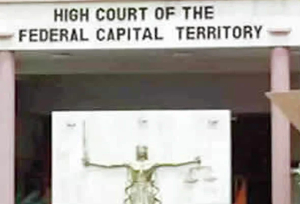Accra, Sept. 12, GNA - Stakeholders at a workshop to discuss the District Assemblies' Common Fund on Wednesday expressed different views about the need for Members of Parliament to wean themselves off the fund as a matter of urgency.
Mr George Kyei Baffour, President of the National Association of Local Authorities of Ghana (NALAG) and some District Chief Executives (DCEs) who made the suggestion said the MPs should partner Ministries, Departments and Agencies to advocate for improvement in the system for adequate resources for effective and efficient service delivery for their constituents.
Many DCEs and Presiding members supported the view that MPs should be weaned off the fund since they were not development agents but policy makers.
They further urged the National Commission for Civic Education to embark on an educational campaign to let the electorate know that MPs were policy makers and not people to be implementing development projects.
However, others held the view that people in the constituencies saw MPs as development agents and expected to see things they were doing physically.
The workshop organized by the Public Agenda Newspaper with support from the Rights and Voice Initiative Fund also had participants discussing the implementation and challenges and suggested solutions to improve the District Assemblies' Common Fund. Mr Kyei Baffour suggested the review of certain portions of the law on decentralization, Act 445, since they empowered the Ministry of Finance and Economic Planning to interfere with the budgetary or fiscal functions of the Ministries, Departments and Agencies. He said government should institute a District Assemblies' Fund Board, which would include Ministries, Departments and Agencies to oversee the activities of the fund. Mr P.C. Appiah-Ofori, Member of Parliament for Asikuma Odoben Brakwa and participants from the Centre for Democratic Development on the other hand argued that even though MPs were policy makers, people in their constituencies saw them as development agents and expected to see things they were doing physically to enable them to get the constituents to vote for them.
He said it would take some time for the Ghanaian electorate to understand that the MP was not to pay the school fees of a needy person or undertake a toilet project. He therefore called for an increase in the MPs part of the Fund since it was used to achieve development in a particular area. Mr Appiah-Ofori emphasized that the MPs fund was a good thing and should be encouraged while advising that MPs who were not utilizing the fund properly should be called to order. Mr Eric Oduro Osae, a lecturer at the Institute of Local Government Studies, said that the formula for distributing the District Assemblies' Common Fund should be flexible to enable the country to achieve proper decentralization, which trickled down to the electorates. Quoting Article 252 (3) of the constitution, he said the formula was usually approved by Parliament to be used by the Administrator in the distribution of the fund and questioned why MPs could not discuss the formula with other members of the various assemblies as soon as it was introduced to parliament to solicit their input before approving it. Mr Osae noted that the composition of the formula could affect the Ministries, Departments and Agencies differently aside giving true meaning to democracy and decentralization as policies and issues got closer to the people.
He observed that the gap between the District Assemblies and parliament had led to the present myth surrounding the formula that it was politically manipulated to the disadvantage of those assemblies which did not vote for a particular government. "Assembly Members in Ghana's assembly system are also at sea as to what is happening to the utilization of the fund.... To them the formula must be amended so that a portion can be extended to them just as has been done for MPs."
Mr Osae also raised questions about deduction from the fund at source for bulk purchases and said the amount deducted from the fund of various assemblies were quite high and could affect development in the assemblies if not checked.
He further asked whether purchases were specifically requested for and sanctioned as a development project by the assembly or imposed on them from the centre. "Who enjoys the discount that is granted on such purchases?" he asked.
Mr. Joshua Nicole, Administrator of the Fund, explained that deductions were done just to facilitate programmes of the local authorities and noted that they were not pushing things down the throat of district assemblies.
Mr. Michael Boadi, Project Coordinator of the workshop, explained that the workshop was not political but was part of Pubic Agenda's mandate of promoting sustainable development.
"While Public Agenda appreciates government's desire to pursue a participatory development by making various assemblies resourceful...we wish to alert government of the problems that bedevil the implementation of Act 445."
Mr Amos Safo, Editor of Public Agenda newspaper, said the workshop was an advocacy programme by the paper to push the agenda of the District Assemblies' Common Fund forward in their quest to ensure good governance and development as a role of the media.
General News of Wednesday, 12 September 2007
Source: GNA












